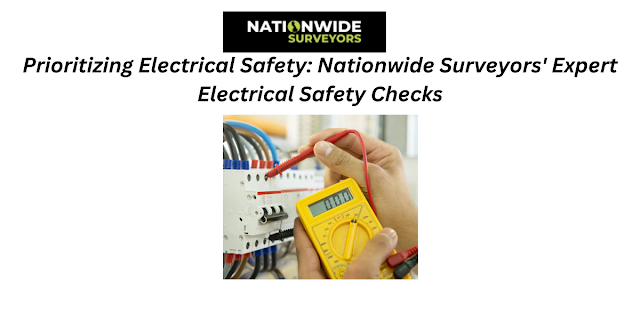EICR Rules Explained: Nationwide Surveyors' Guide for UK Property Owners
An Electrical
Installation Condition Report (EICR) is essential for ensuring the safety of
electrical installations in both residential and commercial properties. In the
UK, EICR rules are designed to protect occupants from electrical hazards, and
landlords are legally required to comply with these EICR
rules to ensure the safety and integrity of their properties.
Key EICR Rules:
- Frequency of Inspections:
EICRs should be conducted every 5 years for rental properties or whenever
there is a change in tenancy. Homeowners are also encouraged to get their
property checked every 10 years.
- Qualified Electricians:
Only certified and experienced electricians are permitted to carry out
EICR inspections to ensure accuracy and compliance with the UK safety
standards.
- Identifying Hazards:
EICR assessments focus on identifying issues such as faulty wiring,
outdated installations, or potential fire risks. The report categorizes
issues into codes (C1, C2, C3) based on the level of urgency required for
rectification.
- Landlord Responsibility:
Landlords must provide tenants with a copy of the EICR and ensure any
hazardous defects are corrected within 28 days.
Penalties for
Non-Compliance
Failure to comply with
EICR regulations can lead to penalties, including fines of up to £30,000. In
serious cases, landlords may face legal action if tenants are harmed due to
electrical faults.
Stay Compliant with
Nationwide Surveyors
At Nationwide Surveyors, we
specialize in providing thorough EICR assessments, ensuring your property
remains compliant with UK regulations. Contact us today for a professional
inspection and safeguard your tenants and property.




Comments
Post a Comment